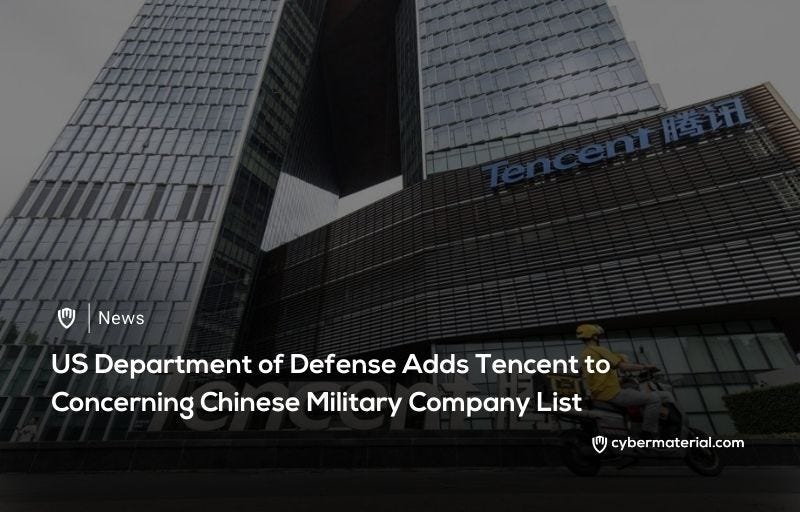
In early 2025, the US Department of Defense updated its “Section 1260 list,” adding Chinese tech giant Tencent to the list of companies considered to be part of China’s military-civil fusion strategy…

In early 2025, the US Department of Defense updated its “Section 1260 list,” adding Chinese tech giant Tencent to the list of companies considered to be part of China’s military-civil fusion strategy…